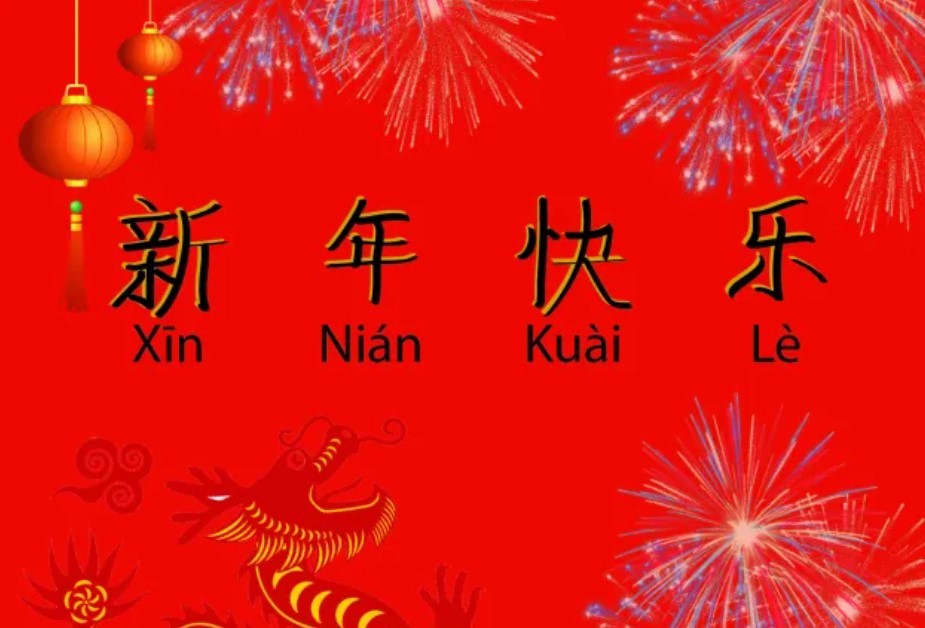How to Say 'I Love You' in 12 Most Spoken Languages
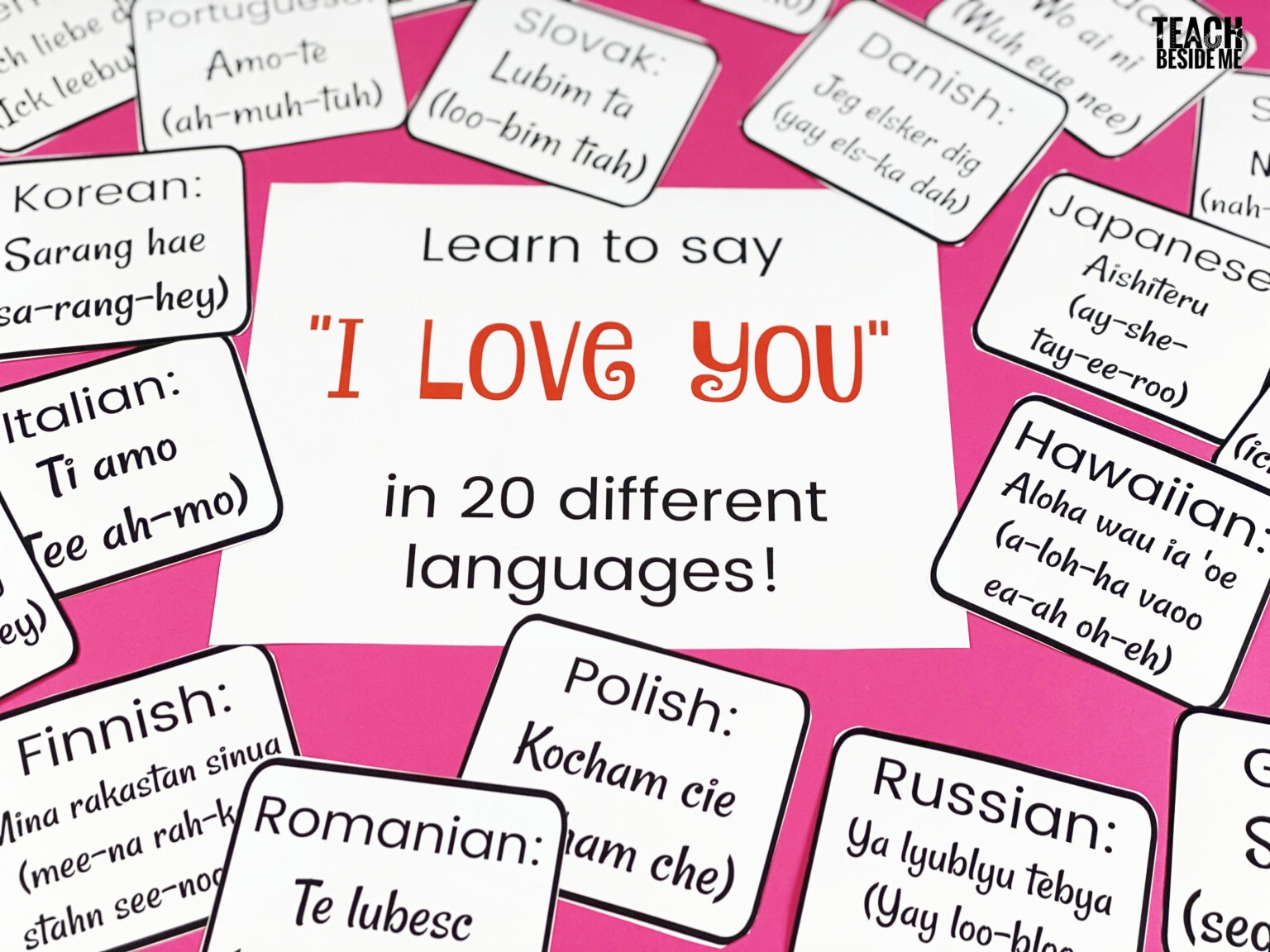 |
| How to Say 'I Love You' in Different Languages |
| Table of Content |
How to Say 'I Love You' in 12 Different Languages
1. How to Say 'I Love You' in Chinese
我爱你 (Wo ai ni)
Language: Mandarin Chinese
Countries: China, Singapore, Malaysia and Taiwan, Hongkong
Usually to express romantic feelings, Chinese people would say “我喜欢你” instead. Here are some phrases that are used to confess to someone.
我喜欢你 (wǒ xǐ huān nǐ) = “I like you.”
我希望和你交往 (wǒ xī wàng hé nǐ jiāo wǎng) = “I would for us to date.”
 |
| say I Love You in Chinese |
2. How to Say 'I Love You' in French
Language: French
If your paramour is of the French persuasion, just say, “Je t’aime.”
Say, “ma chérie,” if you’re saying it to a woman or “mon chéri” if you’re confessing you love to a man.
“Aimer” means to “love”, but it can also mean “to like”, as in “j’aime le foie gras” (“I like foie gras”). However, when you say “je t’aime” to someone, it means you are really in love with that person – it is not something you can say thoughtlessly.
“Je t’aime” can also be told to parents and siblings.
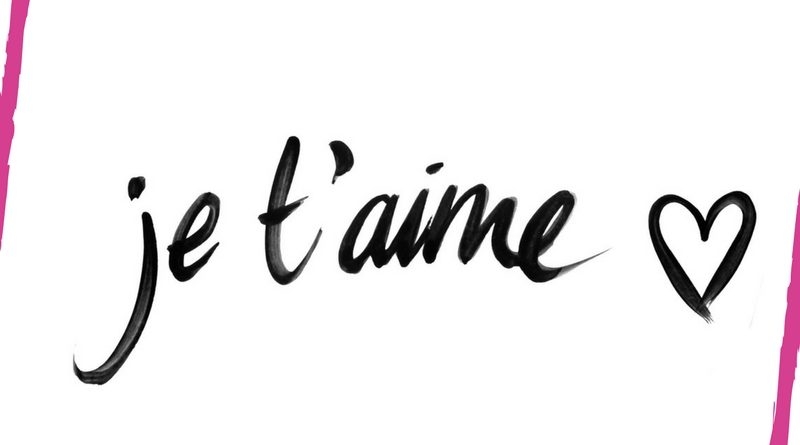 |
| Say 'I Love You' in French |
3. How to Say 'I Love You' in Spanish
Te amo
Language:Spanish
Countries: Hispanic America, Spain, United States, Equatorial Guinea, Western Sahara, Pacific islands
The sweet and simple words te amo perfectly encapsulates that spirit, of lovers lost in each other’s arms. It’s an informal pronoun used, expressing real intimacy. And Spanish-speakers don’t toss amo around lightly—there are other ways of saying “like,” “like a lot” and “like-like” in their language. Amo is reserved for the real deal.
If you’d like to put “forever” in there because you’re absolutely sure they’re the one you have to spend the rest of your life with, you can say, “te amo para siempre.”
 |
| Say 'I Love You' in Spainish |
In some areas, people may also say “te amo” to express affection for their family members. However, this use changes from region to region.
If you’re not sure of the norms in an area, you can play it safe by reserving “te amo” for your romantic lover.
| Te Quiero This is a more general way to say “I love you” in Spanish. People can say “te quiero” to their romantic lovers, but it has a more casual, less serious connotation. Although “quiero” means “I want” when translated to English, “te quiero” doesn’t have the same connotation as “I want you.” It’s a term used to be affectionate to your friends, family, and anyone else you’d like to express love for. |
4. How to Say 'I Love You' in German
Ich liebe Dich
Language: German
Countries: Austria, Belgium (Eupen-Malmedy), Germany, Luxembourg, Liechtenstein, Switzerland, South Tirol (in Italy)
If ever in this lifetime you find yourself falling for a handsome or beautiful (or beautifully handsome) German, be prepared to say, “Ich liebe Dich.”
Ich liebe dich auch
Meaning “I love you too”. Used as a response to the above. It’s often shortened to “Ich dich auch!”
 |
| Say 'I Love You' in German |
Ich mag dich: Translation of “I like you.” You can use it to tell someone you are really fond of him (or her). A stronger form would be “Ich mag dich sehr!” (I am very fond of you!)
5. How to Say 'I Love You' in Japanese
愛してる (Aishiteru)
Language: Japanese
Countries: Japan
Only use “Aishiteru” when you’re really committed to the person you’re telling it too. The Japanese don’t take that one lightly.
But if you really want to tell your partner how much you like them, you can say, “大好き” (daisuki), which means “I like you a lot.”
 |
| How to Say 'I Love You' in Japanese |
6. How to Say 'I Love You' in Korean
사랑해 (Saranghae)
Language: Korean
Countries: North Korea, South Korea
When you say, “saranghae,” the answer you would be looking for would probably be, “judo sarang haeyo.” (I love you, too!)
If the other person responds with something in the vicinity of, “chin-goo ro namgo shipuyo,” (I want to stay friends), then maybe they’re just not that into you…but you may also have just gotten a friend for life, if things aren’t too awkward after this exchange.
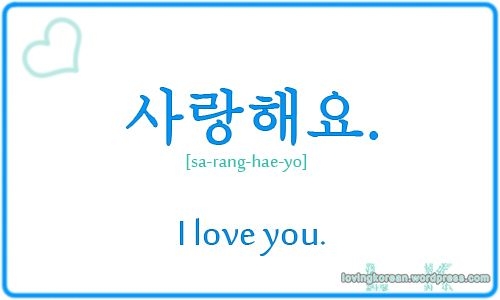 |
| How to Say 'I Love You' in Korean |
7. How to Say 'I Love You' in Arabic
ٲنَا بحِبَّك (Ana bahebak)
Language: Arabic
Countries: North Africa, Western Asia (Middle East), East Africa
There are around 200 million Arabic speakers, with a rich culture and tradition that dates back millennia.
No matter what Arabic-speaking person you fall in love with, “Ana bahebak” are the magic words you need.
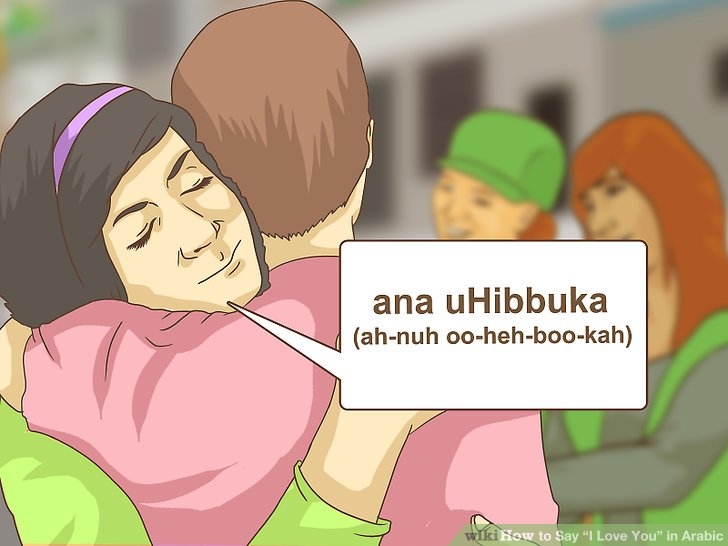 |
| How to Say 'I Love You' in Arabic. Picture: Wikihow |
Say “ana uHibbuka” to publicly and officially declare your love to a male. “Ana” is pronounced “ah-nuh,” and rhymes with the girl’s names “Hannah” and “Anna.” Using this method to say “I love you” is normally reserved for situations in which you want your lover and everyone else to know your true feelings.
8. How to Say 'I Love You' in Hindi
मैं तुमसे प्यार करता हुँ (Main tumse pyar kartha hoon)
Language: Hindi
Countries: India, Fiji, Nepal
The bottom line is that “main tumse pyar karta hoon” is the phrase you need to express love to a woman.To express this most profound emotion to a man, say, “main tumse pyar karti hoon.”
 |
| Say I Love You in Hindi. Picture: Wikihow |
Note that this phrase works not just when speaking romantically to a female, but also when expressing your love to a male, like, for instance, a brother, son, friend, etc.
9. How to Say 'I Love You' in Russian
Я тебя люблю (Ya tebya liubliu)
Language: Russian
Countries: Russia, former Republics of the Soviet Union, Mongolia
Take a page from them and learn Russian for “I love you”: Ya tebya liubliu. (Say the last word three times fast, and it’ll start to sound like “love, love, love.”)
If you want to say I love you in Russian to your girlfriend, say “Я люблю тебя.” or you can play with words and say “Я тебя люблю.”
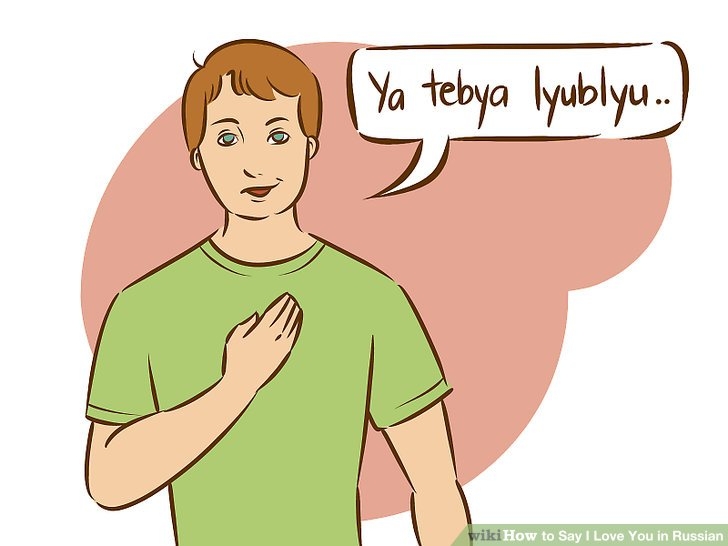 |
| How to Say 'I Love You' in Russian. Picture: Wikihow |
10. How to Say 'I Love You' in Hebrew
אני אוהב אותך (Ani ohev otakh)
Language: Hebrew
If you’re saying “I love you” to a woman,” you’d say, “ani ohev otakh.”
On the other hand, if you’re saying “I love you” to a man, you’d say, “ani ohevet otkha.”
Female to male:
אני אוהבת אותך (ani ohevet otcha)
אני מתגעגעת אליך (ani mitga'aga'at elecha)
Male to female:
אני אוהב אותך (ani ohev otach)
אני מתגעגע אלייך (ani mitga'age'a elayich)
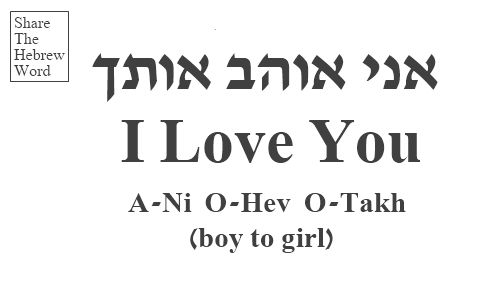 |
| Say 'I Love You' in Hebrew |
11. How to Say 'I Love You' in Greek
Σ΄αγαπώ (Se agapo)
Language: Greek
And greeting the great Socrates by the door, she would probably say, “mou leípeis,” which means “I miss you” in Greek but translates much closer to “you are missing from me.”
These words are all still used today in modern Greece.
 |
| Say 'I Love You' in Greek |
12. How to Say 'I Love You' in Italia
Ti amo
Language: Italian
when you hear, “ti amo,” you’d better watch out—that Italian is out to make you fall in love. This is the language of love, and you can finally win the heart of your soulmate with a simple “ti amo”.
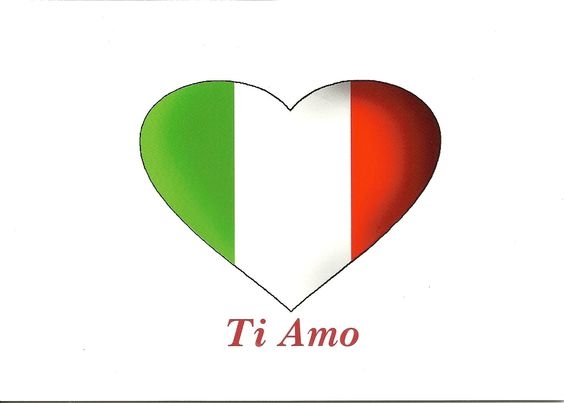 |
| Say "I Love You" in Italian to your special someone |
However, Italians have different ways to express their feelings, depending on the context. If you are speaking with your partner, you can surely say “ti amo”. On the other hand, if you are with your friends or your relatives, you should prefer “ti voglio bene”. They both mean “I love you”, but as you can see, they should be used in different situations to avoid to say something embarrassing by accident!
*So whether you’re telling someone I love you, je t’aime, wo ai ni, nakupenda, or I love you, you can say it in many different ways today.
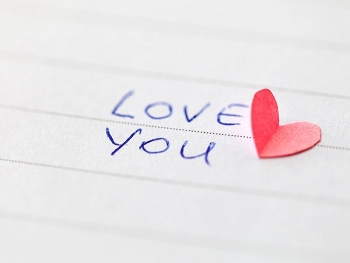 | How to say I LOVE YOU in 55 of the World’s Most Spoken Languages Saying love someone is magical as it can make them feel loved. But if you don't the want to use these common expressions to say ... |

